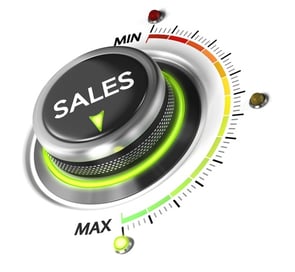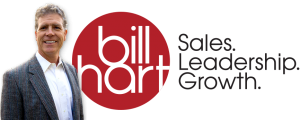 Joe Girard is the greatest salesperson to have ever walked a car dealership's lot.
Joe Girard is the greatest salesperson to have ever walked a car dealership's lot.
During his illustrious 14-year career, he sold more than 13,000 automobiles, including 18 in one day, 174 in one month and a whopping 1,425 in a single year.
His feats have been chronicled in several books, including the Guinness Book of World Records, which lists him as the "world's greatest salesman."
What was it about Girard that made him so effective?
He was a hustler, no doubt. He was creative, to be sure. And he followed the basic sales process:
- Know the products
- Find the prospects
- Approach said prospects
- Assess said prospects' needs
- Present your product
- Close the deal
That's Sales Process 101; every green-horned, fresh-out-of-school salesperson follows the same steps. But what made Girard so effective was the way he took selling to the next level. He knew the absolute, can't-do-without, must-haves of a sales process that's not just effective; it's exceptionally effective.
Here's how Girard improved the basic process and took selling to the next level.
Get to know (really, really know) the customers
Good salespeople know their products and services. Great salespeople know their customers. It's no longer enough to pitch a product's features; today, you have to know how those features solve customers' specific problems. That means knowing how they think and what it is they value.
Girard kept detailed, copious, and personal notes about every customer and prospective customer he ever met. Your sales team can do the same, especially if you combine the power of social media with the power of an effective CRM system.
Educate and inform in authentic ways
The best salespeople don't just rep their own products and services – they serve as educators for their customers. Stay on top of industry trends. Know what other solutions your customers might benefit from experiencing. And then don't be afraid to tell them what you know and how they can leverage it – even if it doesn't result in a sale right away. Customers and prospective customers appreciate authenticity and help. So help them.
Follow up in meaningful ways
"How's the car working out for you? Great? Great. Give me a call when you need a new one."
These are words Girard never uttered. Instead, Girard probably told the customer he'd follow up later to make sure the customer was still satisfied with the purchase. He was also known for regularly sending cards to customers – birthday cards, anniversary cards, get-well-soon cards, just-because cards.
He followed up all the time, and in meaningful ways. He did this because he knew that sooner or later his past customers would need another car – and so would their kids, friends, and family – and he wanted them to buy the car from him when they did.
Ask for referrals
Asking customers for referrals is one of the most overlooked steps in an exceptionally effective sales process. It's also one of the absolute best ways to expand a prospect list and simply sell more stuff.
Girard always asked for referrals from the people to whom he'd sold automobiles. He did this for three reasons:
- Customers like helping their friends and families. Everyone likes to be the expert or "have a guy" who can "hook you up."
- Customers rarely offer referrals on their own. Most people like to be asked for help. It makes them feel like they're part of the process and not just a cog in a machine.
- Because it works. If it didn't, Girard wouldn't be in the Guinness Book of World Records.
Say thank you
Lastly, but certainly not least, as it almost goes without saying: Never forget to say "Thank you."


